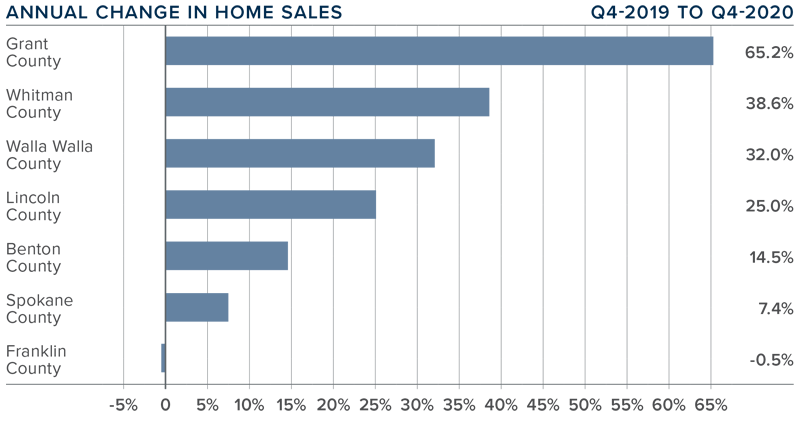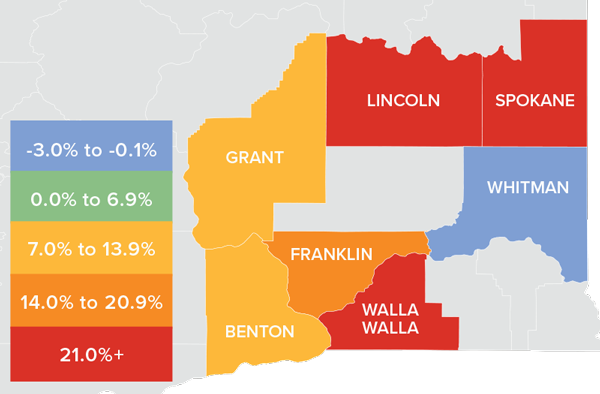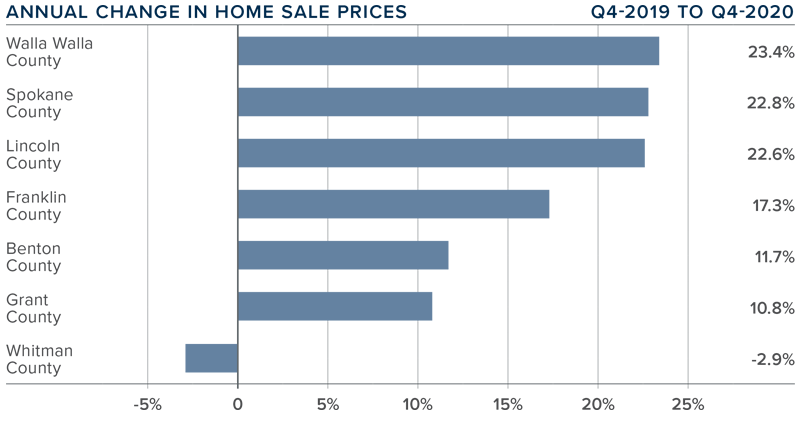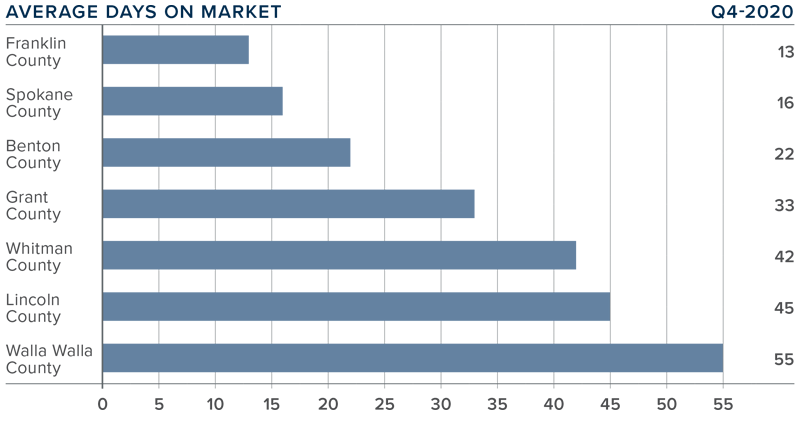The following analysis of the Eastern Washington real estate market is provided by Windermere Real Estate Chief Economist Matthew Gardner. We hope that this information may assist you with making better-informed real estate decisions. For further information about the housing market in your area, please don’t hesitate to contact your Windermere agent.
Regional Economic Overview
The Eastern Washington market lost more than 44,000 jobs as a result of COVID-19, but 27,500 of them have returned. The unemployment rate, which peaked at 14.7%, continues to decline and now stands at a fairly respectable 6.6%. In the third quarter Gardner Report, I suggested that the job recovery was likely to start to slow. This proved accurate, as jobs were lost in all counties contained in this report in November (the most recent month that data is available). That said, I maintain my position that the pace of jobs returning will increase, but not until a vaccine for COVID-19 is freely available.
eastern washington Home Sales
❱ Home sales throughout Eastern Washington rose by a significant 14% compared to the same quarter in 2019, with a total of 3,890 homes trading hands.
❱ The average number of homes for sale in the quarter remained well below normal levels (-52%) compared to a year ago.
❱ Sales activity rose in all counties but one, with significant increases in most markets. The one market where sales activity dropped was Franklin County, but the decrease was very minimal.
❱ Pending home sales dropped in the final quarter versus Q3, but this can be put down to seasonality. Overall, demand remains very robust.

eastern washington Home Prices

❱ Year-over-year, the average home price in Eastern Washington rose a significant 18.1% to $350,486. Home prices were also 2.1% higher than in the third quarter of 2020.
❱ Demand is clearly in place, as proven by the increase in sales. Limited supply is making the market very competitive, which, in turn, is pushing prices higher.
❱ Prices rose in every county other than Whitman, though I am not concerned about the declines in this market. Walla Walla, Spokane, and Lincoln counties saw very significant increases.
❱ The takeaway is that average home-price growth in Eastern Washington remains well above the long-term average due to inventory constraints and very favorable mortgage rates.

Days on Market
❱ The average time it took to sell a home in Eastern Washington in the final quarter of 2020 was 32 days.
❱ During the fourth quarter, it took eight fewer days to sell a home in Eastern Washington than it did a year ago.
❱ All markets, other than Walla Walla (where the length of time increased seven days), saw days-on-market drop compared to the fourth quarter of 2019.
❱ It took six fewer days to sell a home in the fourth quarter than it did during the previous quarter.

Conclusions

This speedometer reflects the state of the region’s real estate market using housing inventory, price gains, home sales, interest rates, and larger economic factors.
Demand has clearly not been impacted by COVID-19, mortgage rates are still very favorable, and limited supply is causing the region’s housing market to remain incredibly active. Because of these conditions, I am moving the needle even further in favor of sellers.
About Matthew Gardner

As Chief Economist for Windermere Real Estate, Matthew Gardner is responsible for analyzing and interpreting economic data and its impact on the real estate market on both a local and national level. Matthew has over 30 years of professional experience both in the U.S. and U.K.
In addition to his day-to-day responsibilities, Matthew sits on the Washington State Governors Council of Economic Advisors; chairs the Board of Trustees at the Washington Center for Real Estate Research at the University of Washington; and is an Advisory Board Member at the Runstad Center for Real Estate Studies at the University of Washington where he also lectures in real estate economics.
 Facebook
Facebook
 X
X
 Pinterest
Pinterest
 Copy Link
Copy Link



